 One of the most referenced tragedies in the Hip Hop world is the events that transpired into the deaths of two talented artists and icons, Notorious B.I.G. and Tupac. At the time, the beef was spilling over into various crews, coasts and people were compelled to take sides in one way or another. At the end of it all, we were left with more questions than answers. From the identity of the killers to the sparks that fueled the beef from the beginning, this conflict has been widely debated for almost two decades. Thinking about that time and how we as a culture and business have evolved since then; it's absolutely clear that Hip Hop is more than music and it's more than just a culture.
One of the most referenced tragedies in the Hip Hop world is the events that transpired into the deaths of two talented artists and icons, Notorious B.I.G. and Tupac. At the time, the beef was spilling over into various crews, coasts and people were compelled to take sides in one way or another. At the end of it all, we were left with more questions than answers. From the identity of the killers to the sparks that fueled the beef from the beginning, this conflict has been widely debated for almost two decades. Thinking about that time and how we as a culture and business have evolved since then; it's absolutely clear that Hip Hop is more than music and it's more than just a culture.POLI-TRICKS AND HIP HOP
In the political world, Hip Hop was initially ignored as a fad stemming from a seemingly oppressed people. Politicians didn't really care much about Hip Hop or its growing roots until it reached the suburbs and affected their households. Once the music crept into the homes and ears of the politician's youth; the culture, the music and the people would be put under a microscope of social criticism for years after and still today. Legislations quickly began to focus on censorship laws and broadcast companies were put under the weight of corporate scrutiny.
The problem with this time in history is that the corporations were not so much interested in censoring the music as much as they were trying to regulate it. Conscious lyrics that opposed the overall conditions that existed were looked down upon because they influenced people to rise up against injustices, taught that education was power and paved a way for artists to influence politics through its constituents who were fans of the music. Seeing that the culture was growing far too quickly for them to control, the best solution was to introduce a money-making machine that would deter future artists from influence in exchange for fame, riches and glory. And let's be real… it's become MAJOR MONEY!
HIP HOP'S GROWING INFLUENCE
Whether it's fashion, commercial TV programming or even a white house press meeting; Hip Hop has crept its way into every facet of life. Its influence is undeniable; though it lacks stable leadership and appropriate direction in terms of social responsibility.
While groups like Zulu Nation, Hip Hop Caucus and Hip Hop Congress and many more organizations attempt to define these concepts and what they mean to the culture; the impact is shadowed by the flood of new music and media that defines Hip Hop to the everyday person at a rapid rate. In essence, the system itself is teaching the world what Hip Hop is about, much like the TV teaches children through more hours of programming than the average parent gets to spend with them. It almost seems to be a losing battle, but perhaps that's the problem. Perhaps the tides of beefs and battles are what skewed our view from seeing the benefits to things like trends in the marketplace.
TO BE OR NOT TO BE PART OF "THE SYSTEM"
One of the things Hip Hop is known for is "bucking" the system. It extends from the days of Public Enemy to NWA to Lil Wayne's consistent disregard for, basically, everything (yes, I put Lil Wayne and Hip Hop in a sentence together). The normality for Hip Hop has always been to go against the commonly accepted practices of society. We are known for doing things our own way, and the idea of subjugating ourselves to a corporate or social system seems simply unnatural for us.
The problem with this stance is that it also disregards the lessons that come with a business mind. The projections, the planning, the project management, the revenue structure, and many more critical business principles that anyone needs to survive the tides of marketing and competition.
The need to be part of "the system" is less relevant when you can learn key concepts of business management and incorporate your own models for success. Unfortunately, these concepts are usually learned ON THE JOB; and while we have more than enough technology to be self-taught these days; people just refuse to sit down, read, learn and apply these concepts appropriately enough to OPERATE PROFICIENTLY and INDEPENDANTLY. The rise of pseudo-corporations has clouded the perception of the market, and now it takes more work to convince someone you have a legitimate business before even getting to any discussion of contracts, compensation or licensing.
Without independence from "the system," there can be no progress to balance the outcome. If we simply merge with it, we become part of the problem that fuels it. The problem we face is not the oppression of an art form or the exploitation of a people; the ROOT issue is our lack of independence through knowledge and application. Independence is not merely the act of paving one's own path; its application frees our dependency from the influence of corporations or other media-based interest groups. Until such a time that professionalism becomes the normality; we will continue to be held subservient to the whims of major brands, huge media corporations and a clueless population. But to blame "the system" is merely shunning personal responsibility.
MORE THAN MUSIC & CULTURE
The purpose in this article is to point out that it's not just about culture; it's not just about music; it's not just about business; it's about LIFE. This thing called, HIP HOP, affects some very large careers, dinner conversations, social media feeds, etc. If something that affects so many people has any chance of making a positive impact, it must be balanced and re-regulated by the very people who gave up on it.



